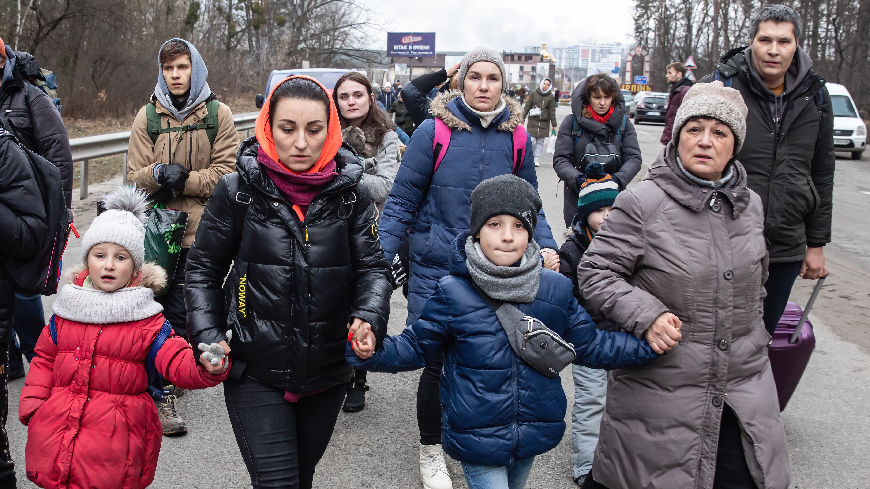Addressing the situation of people displaced by war and other emergencies, countering the rise of antisemitism in Europe as a result of the current conflict in the Middle East, taking resolute action against anti-Muslim racism and discrimination across the continent – these were the key trends in Europe and challenges that European states faced last year and continue to tackle in 2024, says the Council of Europe’s ECRI in its Annual report 2023.
The European Commission against Racism and Intolerance notes that the ongoing war of aggression of the Russian Federation against Ukraine left several millions of displaced Ukrainians to continue seeking protection and support across Europe, in a situation of vulnerability and fear for their future. Russian citizens fleeing conscription or political persecution, including for taking a stand against the full-scale invasion of Ukraine, also decided to seek protection in Council of Europe member states. In addition, within a very short period, over 100,000 Karabakh Armenians fled their homes and headed to Armenia as a result of Azerbaijan’s military operation in the region in September 2023. Council of Europe member states also continued to struggle to develop adequate responses to the arrivals of asylum seekers from other unstable parts of the world.
While the dominant narratives about displaced Ukrainians were those of solidarity and support, several anti-Ukrainian hate incidents were also reported. The development of more hostile narratives about refugees and other beneficiaries of international protection could be observed, including in the rhetoric used by politicians and senior public officials.
As for the second key trend, ECRI says, since the Hamas terror attack against Israel on 7 October 2023 and Israel’s subsequent war in Gaza, a number of European countries have experienced soaring levels of antisemitism. In several countries, the number of reported antisemitic incidents for the last three months of 2023 by far exceeded the numbers usually reported for a whole year and was, in some cases, even much higher. Antisemitic acts covered a wide range of incidents, from hate speech, both online and offline, to acts of vandalism and physical attacks against Jews.
Extremist groups have once again used the renewed violence in the Middle East to spread hatred towards Jews in general. “While criticism of Israel cannot be considered per se antisemitic, calling for the murder of Jews is,” ECRI stresses.
At the same time, in the aftermath of the Hamas terror attack of 7 October 2023 against Israel the number of hate incidents against Muslims increased manyfold. Muslims received blame for the attack and other attacks in the Middle East, based on stereotyping of whole communities and their perceived connections with the use of violence. There have been quite a few instances of public discourse using the threat of a so-called Islamisation of European societies, for political gains.
The implementation of anti-terrorism or anti-extremism laws or policies has also continued to have a negative impact on Muslims or people perceived as such. Persons wearing visible religious symbols or traditional clothing were at times represented as being associated with terrorism or extremism. It has been particularly the case of Muslim schoolgirls in some countries. In the Council of Europe area, there have also been cases of Muslims who were considered to be discriminated against in their access to quality healthcare.


